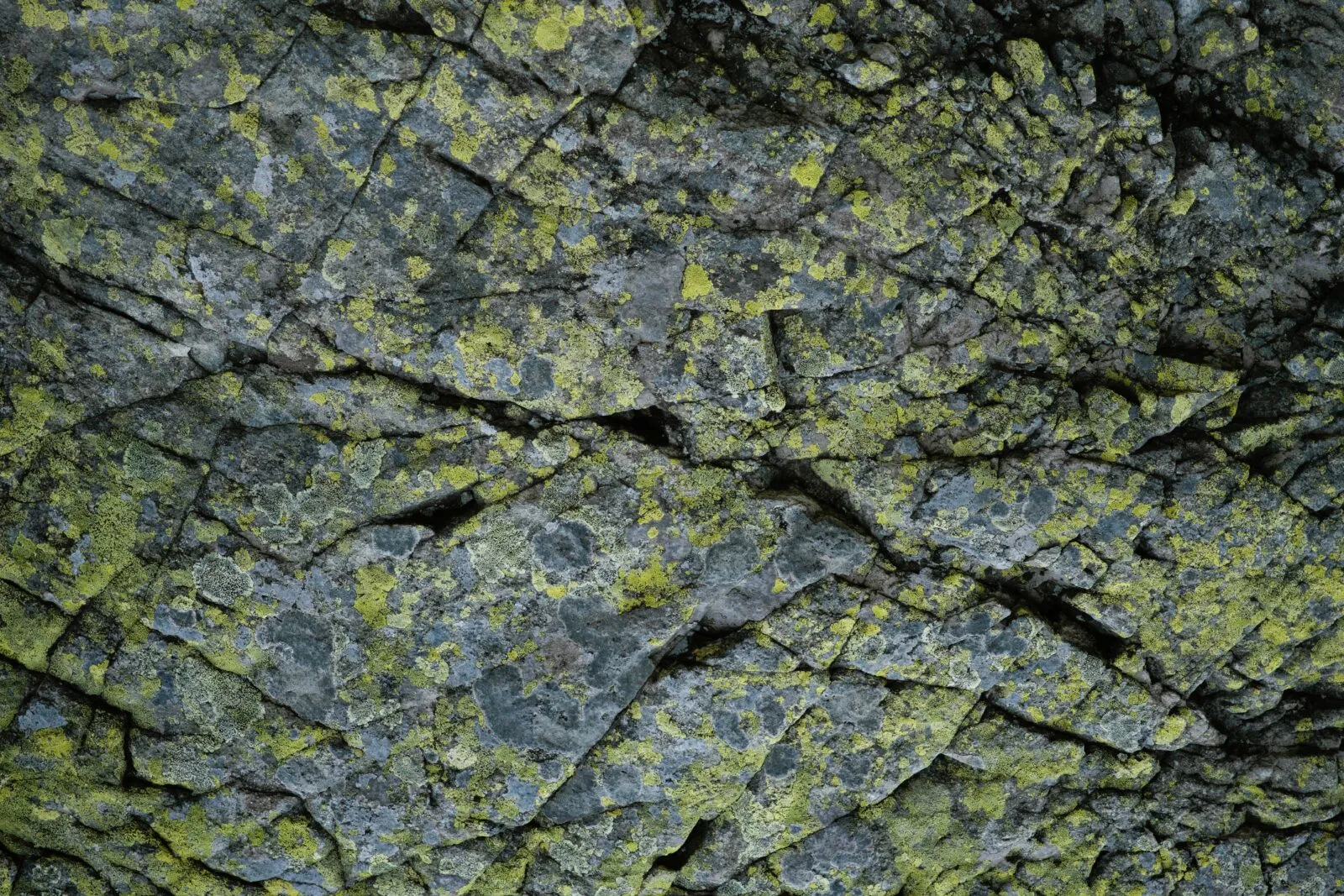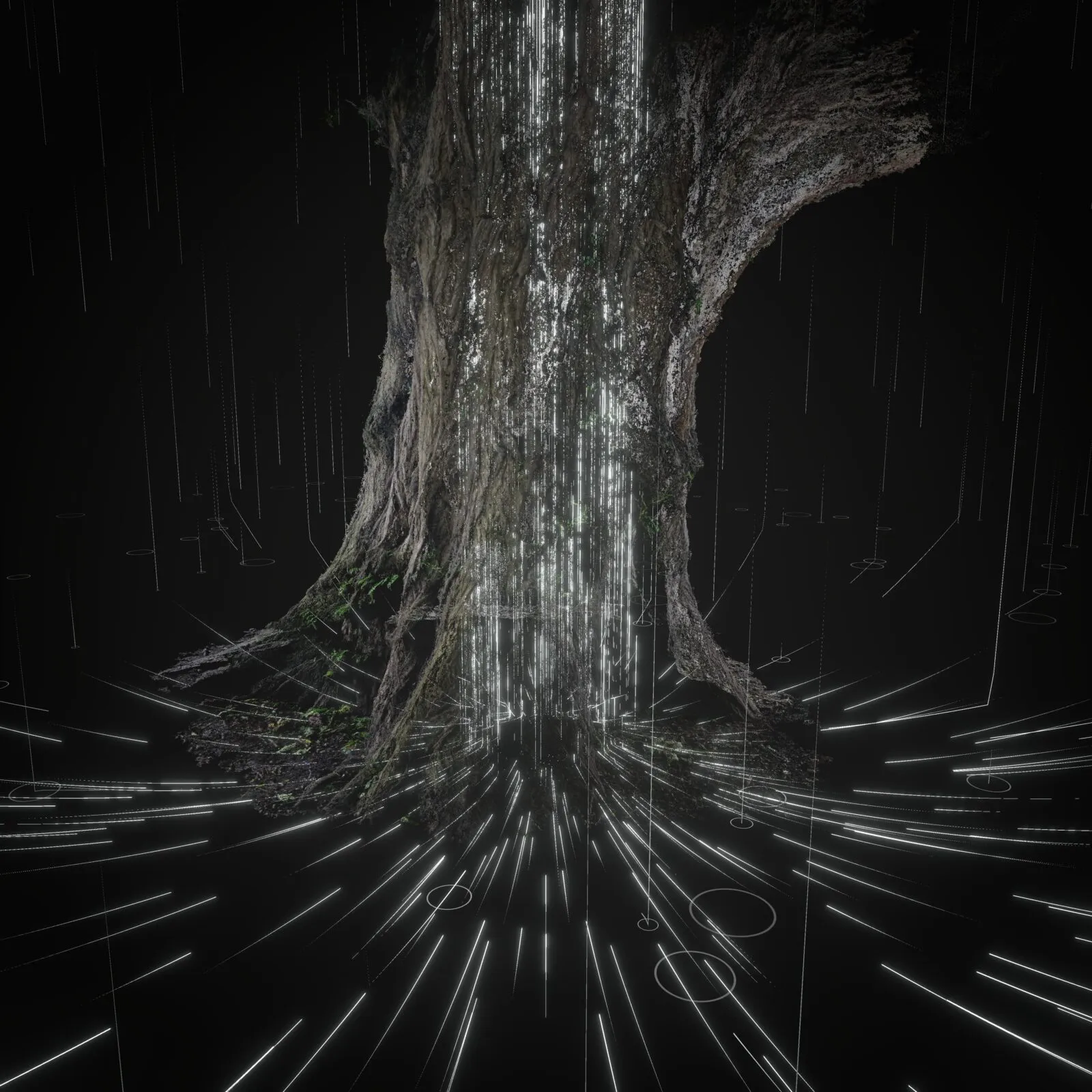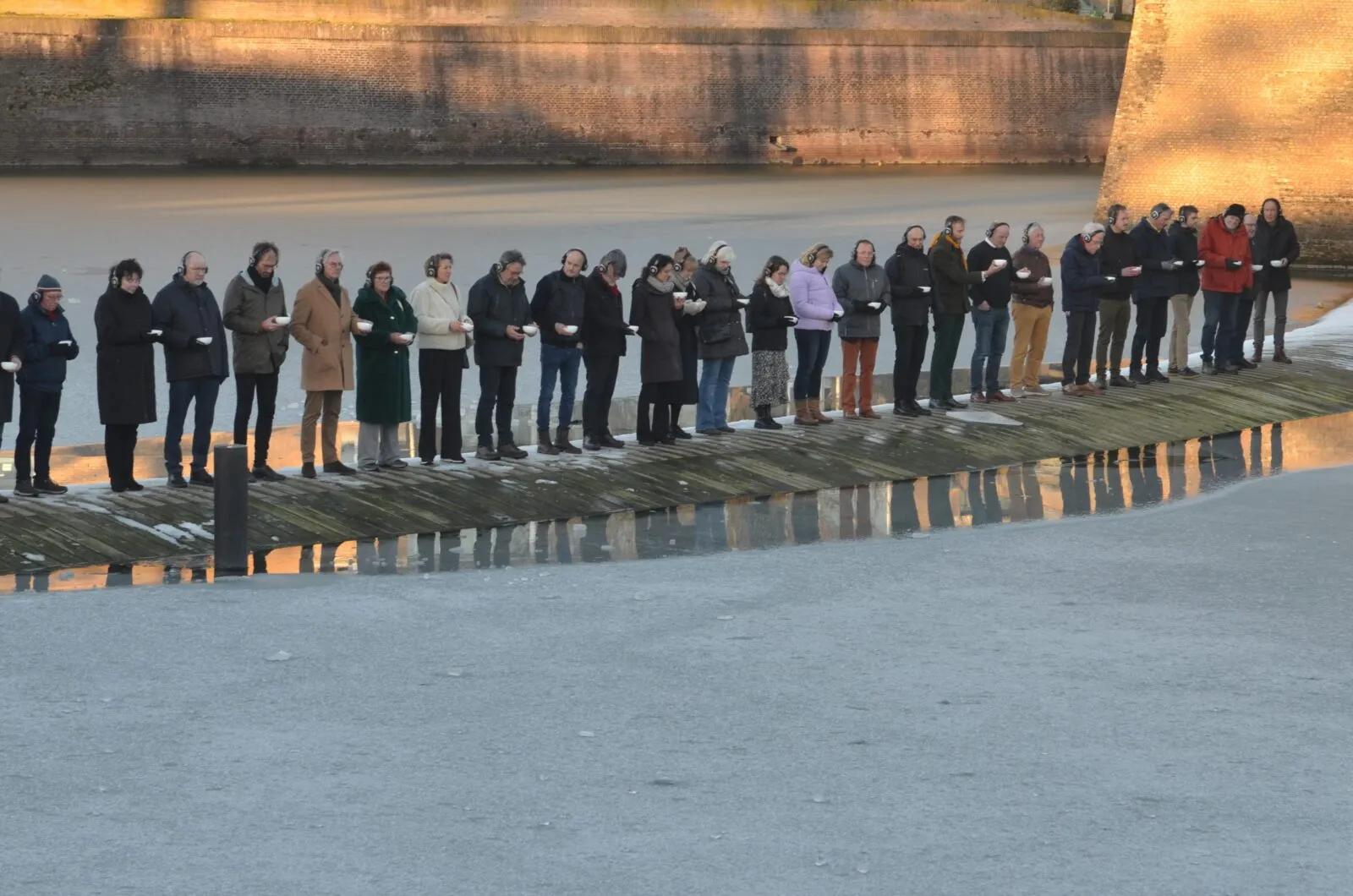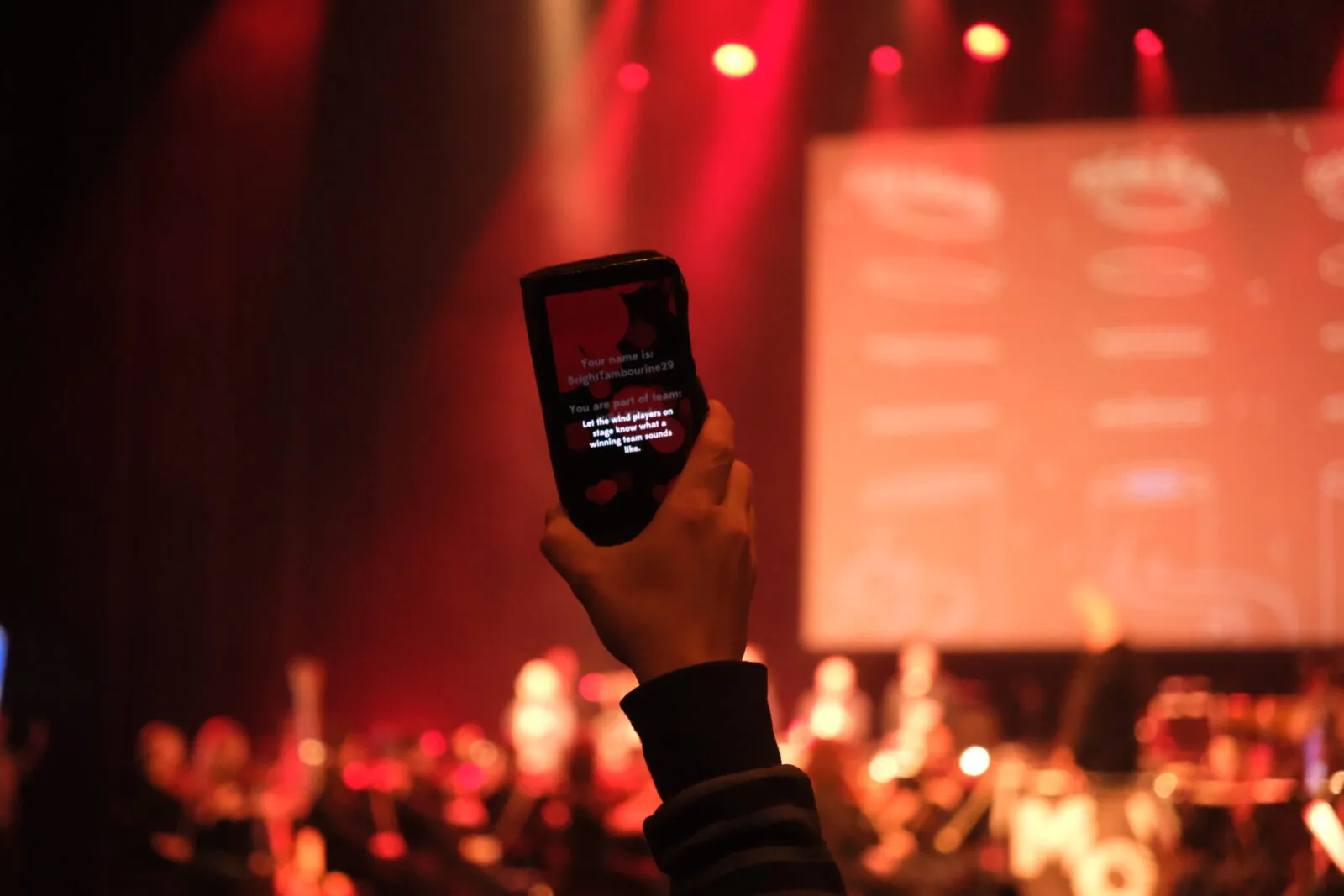
We’ve decided to add a little twist to our series “What’s up Next?”.
We are meeting the 2023-2024 generation of talents in two key moments: at the start of their trajectory – focussing on finding out more about the artists and what they expect from the program, and at the end of their course, discussing the things they picked up on the way.
In June 2023 we had our first talk with multidisciplinary artist Paul Staring. Read below how he positioned himself at the start of his Next trajectory!








Paul studied Photography, Film and the Digital at AKV St. Joost Breda and was soon drawn by the idea of finding new ways to tell stories. A minor in Arts and Interaction followed, sharpening his interest for interaction and immersion. At this stage he also started teaching himself the basics of programming. “I continued my development during my internships for Polymorf, where I worked on the project Symbiosis, and the one for WildVreemd, creators of The Smartphone Orchestra”, Paul says. “After graduation I started working as a freelancer in the digital storytelling scene. I did more projects with WildVreemd and The Smartphone Orchestra, and was also one of the two programmers for the VR experience The Imaginary Friend.”
“For the last years I have been working on other people’s projects – and that was really nice but it was also making me feel a bit like a technician.” Paul explains. ”There is really a part of me that just wants to make meaningful things that can really help people. I think a lot of the problems we are currently facing are in a sense caused by technology and won’t be solved by adding more technology. So there is for me an urge to take a step back and dive in my practice as a storyteller. I try to find a middle ground in which I don’t throw technology away but do shift the focus on the content and meaning, more than creating innovation technologies.”
“A project that really helped me achieve this was my graduation project Isopodcast. The medium was an interactive podcast. The technological part was rather simple: you had to press buttons in order to let the podcast continue. The story was inspired by meeting a woodlice while hiking. I had the feeling this woodlice was trying to tell me something but I wasn’t able to listen to it because I didn’t speak woodlice. And that was the starting point of the project and I was wondering what it would be like if I could make people listen to their surroundings better. So through the app people were prompted to go outside and place their phone on the ground where they thought the wood lice might appear. Once the app acknowledges that the phone is on the floor, it launches a sound scape as if emerging from the soil. And then at some point a fictive ‘woodlice’ crawls under your phone, making it vibrate. That, for me, is one of the magical aspect of sound design. I feel I was really using the medium to sort of sharpen the people’s senses and to guide them through a sensory experience.
We live in a world where our brain is very central in all the experiences and our senses get left out a bit. A way to immerse yourself more in the world and not in your thoughts, is connecting with what you are feeling. What I have come to realise, also about technology, is that I would really like to use it in a way where it’s not like a distraction. I think a lot of the technology is used like an escape: VR, games,… this is also nice sometimes. But it would be really cool if we could use that distracting quality to immerse people more in the reality we have here. Especially if there are so many things that need our attention and need tending to, like ecology and more biodiversity. Maybe this will be a project I will explore during the trajectory.”
Talking about other things he would like to do during his Next time, Paul says: “If I look more at the core of my practice, what I would really like to do in the program is create more immersive storytelling. I really want to dive into telling stories in the most analogue way possible. To get those skills going.”
One of the particularities of the Next program is that aspiring participants need to first be nominated by somebody else in the industry, in order to be able to apply and then stand a chance of being selected. Paul recalls a funny experience about this process: “I got nominated last year [2022] but something went wrong with my email so I only saw the invitation to apply half year later. I was so sad. But it ended up being a good thing because then I wouldn’t have had the time and space to really dive into it. This year [2023] I got nominated again and here I am!”
We asked Paul if given the choice, who would be his ideal mentor in the program. “I am really just figuring this out” he replies. “I feel like I am just changing my direction, which is what I really want to use this trajectory for, but I am also entering a terrain that I know very little about. I think at some point I would like to be a sort of combination between a storyteller and a farmer. But the ecology part is really new for me.
If I look purely from the storytelling perspective, there is this guy Devin Person and he has declared himself to be a wizard. What I really like about him is his idea that ever since science overtook religion in the importance to our daily lives, we have been lacking in meaningful experiences. He is researching this aspect by proclaiming himself to be a wizard, embracing that archetype in all its funniness and in all the seriousness. He says ‘I am not a powerful wizard. I can only do small acts of magic, making people feel slightly better.’ So far you can see him on the subway in New York, giving advice to strangers. And now he also has a podcast.”
On the subject of works inspiring him, Paul mentions Outer Wilds. “The game is like a very tiny solar system. You are an astronaut that explores it. But first you have to decipher some messages from past civilisations. No matter where you land and how you enter the story, it always makes sense and draws you in. And it motivates you just, simply by arousing your curiosity and giving you a sense of awe.
Another project I really like is The Midnight Gospel, a Netflix animated podcast co-created by comedian Duncan Trussel and animator Pendleton Ward. It’s a very bizarrely made podcast which touches on more difficult and dark subjects, such as death.”
Given the nature of the conversation, we ended the talk with a slightly atypical request. We asked Paul to give advice to his future self at the end of the Next trajectory: “I think what I am enjoying now is thinking very broadly about what I could do. I enjoy the freedom and having the time to interact with people, connecting and really trying out new things. I think that the advice I would like to give myself at the end of the trajectory, when I expect things will be more settled, is to keep space for this. For exploring new things, meeting new people, not getting too settled in my ways. Staying in motion.”